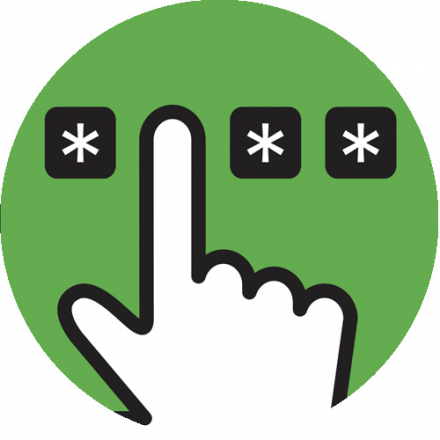Chip and Pin Credit Cards

All the increasing instances of fraud made it obvious that something had to change, something that would offer consumers another layer of protection. The use of credit cards has multiplied over the past decade, giving shoppers a convenient way to pay for their purchases online and offline. And while it was left up to websites, consumers and lenders to make the online shopping experience more secure, EuroPay, MasterCard, and Visa all got together to come up with chip and PIN credit cards that offer another layer of protection.
Chip and Signature
Some cards don't require a PIN, mostly in the United States. Instead, they work just like they used to and people sign the receipt or point of sale device once the transaction has been approved. The problem here is that you can make just about any mark that you want to and it will go through, so no one needs to actually know how to write your signature. With a personal identification number, or PIN, they do need to know the PIN or the transaction won't go through. In fact, it's the PIN that makes debit card transactions so secure.
Who Is Responsible for Credit Card Fraud?
In the past, lenders were the ones who primarily took responsibility if fraud was involved in the form of identity theft or just a stolen credit card. In some cases, they are still the ones liable, but not in most cases.
Lenders who have not offered their customers a card with a chip in it may end up footing the bill if a credit card is stolen and used. This is one of the many reasons that most lenders were happy to implement the chip system. It relieved them from a liability that they were happy to get out from underneath of.
Next in line is the merchant. Merchants in the United States were supposed to be EMV compliant by October of 2015. Those who aren't could face hefty fines and more. Since they don't offer the highest level of security available when it comes to credit card transactions, they put every one of their consumers at risk. For that reason, and because they are beyond the compliance date, they put themselves in a position to face numerous lawsuits, even if no fraud was committed. Why? Because they have allowed an increased risk when it could have been limited. All the same, if fraud is committed, merchants will have to pay the costs themselves rather than looking to the cardholder or lender who provided the card.
There are cases when the consumer may be held responsible. For instance, if you make a purchase at a POS machine that is EMV compliant, but you use the stripe instead of the chip, you are knowingly putting your own card at risk.
Issues with Chip and Signature Cards
Unfortunately, there is no way to prevent fraud completely. Even before the cards were available, hackers were busy devising ways to get around them. That would be the case no matter what level of technology was used because those people just see it as a greater challenge. So, you still need to be diligent about protecting your privacy and using your credit or debit cards in both public and private. Another issue is that it takes longer for the POS machines to process payment when the chip is used. That's when merchants rely on public ignorance and hang a sign ordering customers to use the stripe.
Compliant Out of Use Machines
Many merchants made sure they were EMV compliant so they didn't have to worry about any sort of fines or fees. At the same time, they don't allow their customers to use the chip portion of the machine, leaving notes or other ways to tell them how to pay for their goods. These merchants are still liable for not just instances of fraud, but the potential instances that could occur, just as they would be if they weren't EMV compliant. Furthermore, merchants that do this to their machines send a clear signal to consumers. That signal is that they put more value on the ignorance of the consumer than on their privacy.
Protect Yourself from Credit Card Fraud
No matter what kind of technology is in place, it pays to put in some effort of your own. There really is quite a bit you can do to protect your finances from credit card theft, even if you do use chip and PIN credit cards. They are far more secure than anything else, but they don't prevent every instance of theft from clever hackers. Remember, even if the merchant is financially liable, that doesn't stop instances of credit card fraud from being a major pain for you to deal with.
Only use the chip method: If the merchant has a sign on his or her machine that says to use the stripe, think twice before you use it. You might ask them why and insist on using the PIN method. If you do use the stripe method and choose to swipe your card, be sure to use your phone to take a photo of the message and the machine, with as much information included as you can. This way, if it ever goes to court, you have evidence that the merchant may have been technically compliant, but refused to allow customers to make use of the technology available.
- Hide your card: As rude as it may seem, keep your cart behind you at all times to you at least make it harder for people to see your card and the PIN you use with it. Cover as much of the POS machine as you can with your own body, turning the machine if you have to.
- Keep an eye on your balances: Check your account on a regular basis to make sure only your purchases are listed on it. You might also make it more secure by changing your PIN from time to time.
While chip and PIN credit cards don't provide 100% security, they are the best security available at this time. Use them wisely and protect them just as you would a credit card with only a stripe.
Chip and Pin Cards for Travel to Europe with No Foreign Transaction Fee
At one time, European retailers were the most common to use chip and pin cards. In fact, many merchants in Europe only accept chip and pin cards rather than those with the magnetic stripe. So, it was important for travelers to carry at least one card with a chip in it. Further, those who travel outside of the United States can save as much as 3% in additional fees if you carry a card that does not charge a foreign transaction fee. Some of the best chip and pin cards we recommend for traveling to Europe that also have no foreign transaction fees include the following:
$95 annual fee, waived for the first year
or no annual fee for basic Sapphire card
2x points on travel and dining
1 point per dollar on all other purchases as usual
the card is made of metal
The Chase Sapphire Preferred card is a popular general rewards card for travelers, especially those who travel abroad. This card awards 2X points for travel and dining at restaurants and one 1X point on other purchases. You can redeem points for travel, gift cards, and cash, but you can also transfer them to other travel programs. You get 20% off travel when you redeem your points for travel through Chase Ultimate Reward. New cardholders can earn a bonus of 50,000 points after you spend $4,000 in the first 3 months of opening the account. There is no foreign transaction fee. The annual fee of $95 is waived your first year.
Gold: $95 annual fee, waived for the first year
Platinum: $195 fee
Reserve: $450 fee
Delta benefits
If you frequently travel with Delta Air Lines, you might prefer the Gold Delta SkyMiles Card from American Express over other rewards cards. This card awards two miles for Delta purchases and one mile on other purchases. It also comes with other travel benefits such as first checked bag free, priority boarding, and discounted SkyClub access. New cardholders can earn a bonus of 30,000 miles after you spend $1,000 in the first 3 months of opening the account and a $50 statement credit after you make a Delta purchase with your card in the first 3 months. There is no foreign transaction fee. The annual fee of $95 is waived the first year.
no first-year annual fee, $59 after
40,000 miles welcome bonus
2x miles on everything
Visa Signature status
The Capital One Venture Rewards Credit Card awards a flat rate of two miles for each dollar you spend with the card on all purchases. You can redeem your miles for a statement credit against a variety of travel purchases such as airfare, hotels, car rentals, and cruises. New cardholders can earn a one-time bonus of 40,000 miles after spending $3,000 in purchases in the first 3 months of approval. There is no foreign transaction fee. The annual fee of $59 is waived the first year.
Leave a comment
CREDIT SCORE UPDATES
exclusive members-only deals






